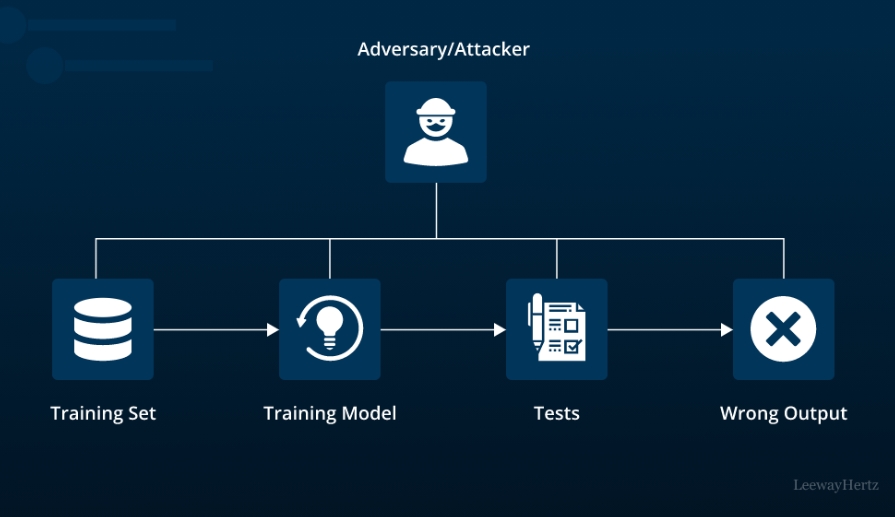As the adoption of machine learning (ML) models accelerates across industries, ensuring their security has become a critical concern. ML models, while powerful, are vulnerable to various threats that can compromise their integrity, confidentiality, and availability. In this article, we will explore the key aspects of ML model security, the potential risks involved, and how artificial intelligence (AI) consulting services can help enterprises safeguard their ML assets.
Understanding ML Model Security
ML model security encompasses the protection of the entire machine learning lifecycle, including data collection, model training, deployment, and ongoing maintenance. Securing ML models involves defending against threats such as data poisoning, model theft, adversarial attacks, and privacy breaches.
Key Security Threats to ML Models:
- Data Poisoning:
- Attackers introduce malicious data into the training dataset to corrupt the model’s learning process, leading to inaccurate or biased predictions.
- Model Inversion:
- By querying the model, attackers infer sensitive information about the training data, potentially compromising privacy.
- Adversarial Attacks:
- Attackers craft specific inputs designed to deceive the model into making incorrect predictions, which can be critical in applications like image recognition and autonomous driving.
- Model Theft:
- Unauthorized entities replicate a deployed model by querying it extensively, leading to intellectual property theft and competitive disadvantage.
- Model Evasion:
- Similar to adversarial attacks, this involves modifying inputs slightly to avoid detection or classification by the model, often used to bypass security systems like fraud detection.
Best Practices for ML Model Security:
- Data Validation and Sanitization:
- Implement rigorous data validation techniques to detect and filter out malicious or corrupt data before it enters the training pipeline.
- Robust Model Training:
- Use techniques such as adversarial training, which involves exposing the model to adversarial examples during training to improve its resilience against such attacks.
- Access Controls:
- Enforce strict access controls to limit who can interact with the model, both during training and deployment, ensuring only authorized personnel can access sensitive components.
- Model Monitoring and Auditing:
- Continuously monitor models for unusual activity or performance degradation that could indicate an attack, and conduct regular audits to ensure compliance with security policies.
- Encryption:
- Encrypt data at rest and in transit to protect against unauthorized access, and consider using homomorphic encryption to perform computations on encrypted data without decrypting it.
- Differential Privacy:
- Incorporate differential privacy techniques to ensure that the inclusion or exclusion of a single data point does not significantly affect the model’s output, protecting individual data privacy.
The Role of AI Consulting in ML Model Security
AI consulting firms provide specialized expertise to help enterprises navigate the complexities of ML model security. These firms offer a range of services designed to enhance the security, performance, and reliability of ML models throughout their lifecycle.
Key Services Offered by AI Consulting Firms:
- Security Assessment:
- Conduct comprehensive security assessments to identify vulnerabilities in existing ML models and infrastructure, and recommend mitigation strategies.
- Custom Security Solutions:
- Develop tailored security solutions that address specific threats and requirements, leveraging advanced techniques like adversarial training and secure multiparty computation.
- Regulatory Compliance:
- Assist organizations in ensuring that their ML models comply with relevant regulations and standards, such as GDPR, HIPAA, and CCPA, by implementing appropriate privacy and security measures.
- Incident Response:
- Provide support for incident response and remediation in the event of a security breach, helping organizations quickly recover and mitigate damage.
- Training and Awareness:
- Offer training programs to educate staff on best practices for ML model security, fostering a culture of security awareness within the organization.
- Ongoing Support and Monitoring:
- Deliver continuous monitoring and maintenance services to ensure that ML models remain secure over time, adapting to evolving threats and technological advancements.
Conclusion
As machine learning models become integral to business operations, ensuring their security is paramount. ML models are susceptible to a range of threats that can undermine their effectiveness and compromise sensitive data. By implementing best practices and leveraging the expertise of AI consulting firms, enterprises can fortify their ML models against these risks, ensuring their reliability and integrity. AI consulting firms play a vital role in this process, offering tailored security solutions, compliance support, and continuous monitoring to help organizations protect their valuable ML assets in an increasingly complex threat landscape.





